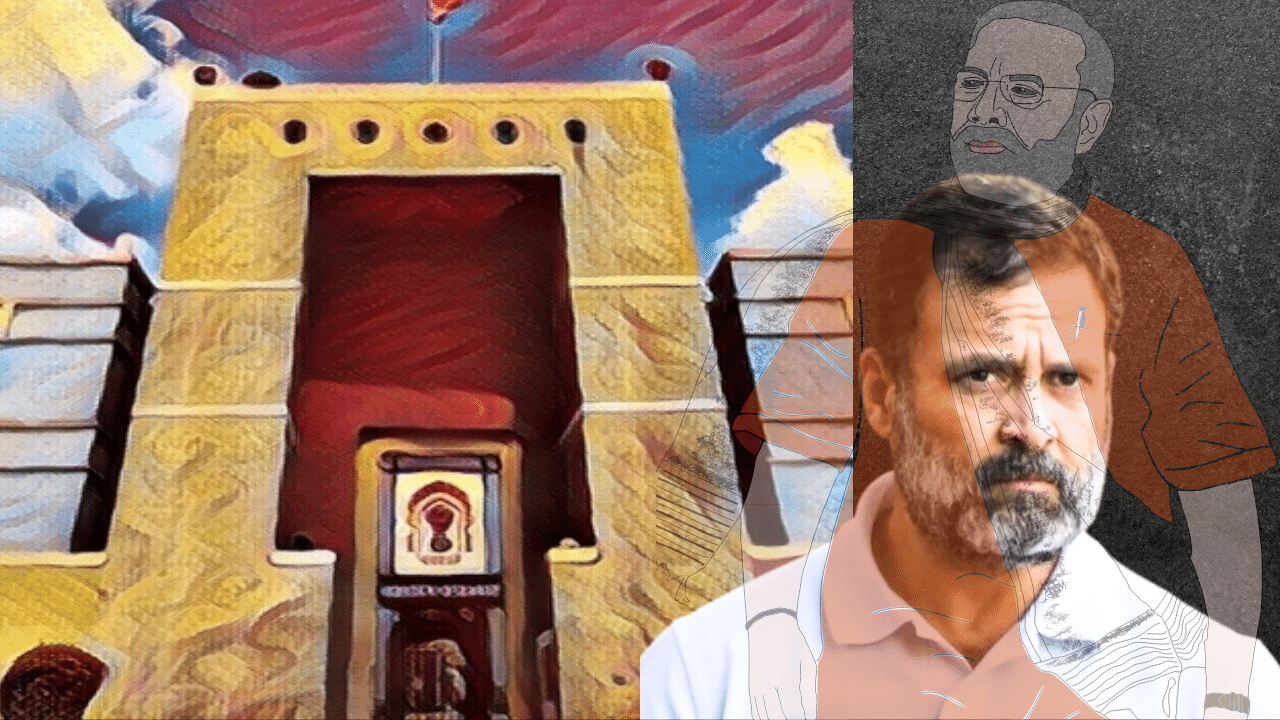Last Thursday, a court in Surat city, Gujarat, convicted Rahul Gandhi,
a Member of Parliament for the Indian National Congress, in a criminal defamation case related to his purported remark about the Modi surname. The court sentenced him to two years in prison under section 504 of the Indian Penal Code, which is the maximum punishment for the offence.
Mr. Rahul Gandhi was accused of making the statement, “how come all the thieves have Modi as the common surname?” which resulted in the complaint being made against him. The complaint against Mr. Gandhi’s purported remark about the Modi surname was lodged by Purnesh Modi, a former Gujarat minister and current MLA of the Bharatiya Janata Party.
According to the complainant, Mr. Rahul Gandhi allegedly made the controversial remark during a pre-2019 Lok Sabha election rally in Kolar, Karnataka, which defamed the entire Modi community.
On Thursday, the Congress party displayed posters in support of Rahul Gandhi outside the Surat Court, where he had arrived for the court proceedings. The posters featured the message “let’s go to Surat in support of democracy” and were accompanied by images of Bhagat Singh and Sukhdev.
The conviction of Mr. Gandhi has sparked widespread debate and discussions across the country. Some see it as a victory for the BJP and a dent in the image of the Congress party, while others view it as an attack on free speech and democracy in India. The Congress party has put up posters in support of Mr. Gandhi outside the Surat Court, where he appeared for the court proceedings.
The posters read “let’s go to Surat in support of democracy” and featured pictures of Bhagat Singh and Sukhdev, two Indian freedom fighters who fought for the country’s independence from British colonial rule. The Congress party’s move to put up posters in support of Mr. Rahul Gandhi shows their commitment to upholding the values of democracy and freedom of speech, which are fundamental to the Indian Constitution.
The case against Mr. Rahul Gandhi raises several important questions about free speech and defamation laws in India. While it is important to protect individuals and communities from defamatory remarks, it is also essential to uphold the right to free speech and expression, which is enshrined in the Indian Constitution. The case also highlights the need for greater clarity and specificity in India’s defamation laws, which have often been used to stifle dissent and criticism.
The conviction of Mr. Rahul Gandhi also raises questions about the role of the judiciary in upholding democratic values in India. While the judiciary is an independent and impartial institution, its decisions can sometimes be influenced by political factors. The fact that Mr. Gandhi has been convicted in a defamation case filed by a member of the ruling BJP party raises concerns about the impartiality of the judiciary and its ability tothe defence of citizens’ rights in a democracy.
The case against Mr. Rahul Gandhi also highlights the importance of responsible and ethical journalism in India. The media is extremely important in shaping public opinion and holding those in power accountable. However, in recent years, the Indian media has come under increasing criticism for its sensationalist and biased coverage of political events. It is essential for the media to uphold the principles of ethical and unbiased journalist to ensure that the public is informed in an objective manner and not influenced by political agendas or personal biases.
In the case of Rahul Gandhi, the media coverage of his alleged Modi surname remark has been widely debated. Some media outlets have portrayed him as a politician who makes controversial and defamatory remarks, while others have defended him, stating that his remark was taken out of context.
It is crucial for the media to present all sides of the story and not jump to conclusions based on incomplete or biased information. Journalists have a responsibility to fact-check their stories and verify their sources to ensure that their reporting is accurate and credible. They should also avoid sensationalism and stick to the facts, without resorting to personal attacks or character assassinations.
Moreover, the media should refrain from being a mouthpiece for any political party or ideology. They should strive to maintain their independence and impartiality, which is essential to maintain the trust of the public.
The media’s role in a democratic society is to act as a watchdog and hold those in power accountable for their actions. This requires a commitment to ethical journalism and a willingness to challenge authority when necessary. Journalists must be fearless in their pursuit of the truth, and they should not be intimidated by those in power or influenced by their personal biases.
In recent years, there has been a growing concern over the state of press freedom in India. Several instances of journalists being targeted and harassed for their reporting have come to light, highlighting the need for greater protection for the media.
It is the responsibility of the government to ensure that the media is free to operate without fear of retribution or censorship. The government should also take steps to prevent the abuse of defamation laws, which are often used to silence journalists and stifle free speech.
“Supreme Court Move to Uphold Judicial Independence through Reiteration of Judge Appointments”









Leave a Reply